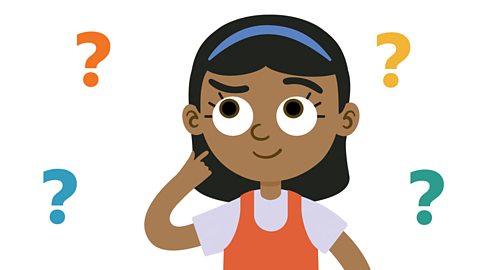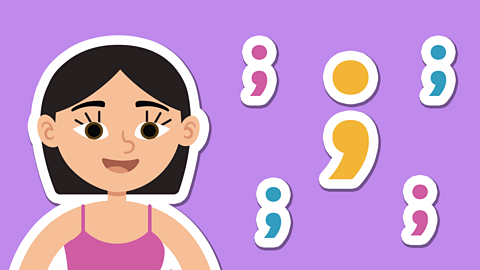Using inverted commas

When you are writing, inverted commas or speech marks go before and after direct speech, surrounding what was said.
For example:
"I'm hungry," she complained.
If another character replies, use another set of inverted commas.
For example:
"What's for tea?" she asked. "Delicious ants!" her mum replied.
Punctuation, such as question marks, full stops and exclamation marks go inside the speech marks.

Watch: Using inverted commas
When do we use inverted commas?
Direct speech

Direct speech is when the exact words that have been said by a person are written down inside inverted commas.
Inverted commas go before and after direct speech. They surround what was said by the speaker.
For example:
"I'm pleased to have raised so much money," said Lucy

Punctuating direct speech

A new speaker needs a new line.
You should use a capital letter at the start of each piece of speech.
Punctuation (question marks, full stops and exclamation marks) go inside the inverted commas.
If the person who is speaking is named before the speech, you must use a comma before the first set of inverted commas.
For example:
Tom exclaimed, “What a wonderful day!”

Activity 1
Activity 2
Activity 3
Activity 4

Writers use direct speech in their stories to convey more about a character or move the action on.
Read the scenarios below. Your task is to write a response using direct speech.
You can be as creative and imaginative as you like!
For example:
Kit and Ahmed are playing in the park.
“Race you to the slide!” yelled Ahmed.
“You’re on!” exclaimed Kit and he started running.

- Levi and Josh are watching a football match.
“Did you see that?” asked Levi.
- Mr Lavin and Mr Walsh are in the staff-room.
“I thought there were some biscuits in the tin,’ said Mr Lavin.
- Beryl and Susie are at the bus stop.
“Do you think the number 57 is ever going to come?” asked Beryl.
Play our English game to get ready for the SATs. gamePlay our English game to get ready for the SATs
In Crystal Explorers, use grammar, punctuation and spelling skills to explore jungles, caves and tombs on your mission!

More on Punctuation
Find out more by working through a topic
- count7 of 12

- count8 of 12

- count9 of 12

- count10 of 12
